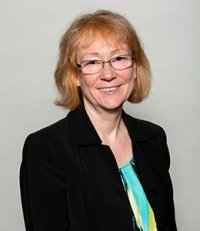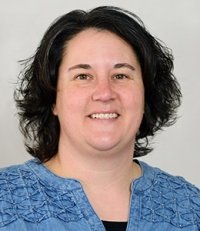Teaching and Learning

- Contact Information
-
- 570-389-4955
- 570-389-3848 (fax)
- Send an Email
-
131-A Waller Administration Building (WAB)
- Office Hours
-
Program Contacts
Early Childhood Education – Dr. Molly Marnella - mmarnell@commonwealthu.edu
Mid-Level, Secondary, K12 Education – Dr. Brett Everhart - beverhar@commonwealthu.edu
Counseling and Educational Leadership – Tom Starmack - tstarmac@commonwealthu.edu
Teachers have an impactful role in the life of a developing child through mentoring, advocating and fostering learning. And as the child learner develops, the teacher continues to be a big influence in the classroom as a role model and support mechanism.
Through the College of Education's Conceptual Framework vision, the Department of Teaching and Learning develops education majors into responsible educators who provide a safe, caring and effective classroom environment for their future students. It also provides teacher candidates with a strong foundation of research-proven teaching methods in specific subject and discipline areas to effectively prepare their future students for the next step of their lives.
Become the teacher your students will never forget. Build a strong foundation of child development through your desire to see children learn and grow, while serving as a valuable resource to their family in forging a path for continued learning success.
Early Childhood Education Program
Admitted Summer 2020 or later
Admitted Fall 2017 through Spring 2020
Teaching and learning are more than two sides to an equation. There’s a human quotient. Bloomsburg teaches you to factor that into every lesson. And it works. At the core is our McDowell Institute, which focuses on curriculum that embraces the social, emotional and behavioral wellness of youth and young adults across school and community settings.
Middle Level Education Program
Admitted Summer 2020 or later
- ML 4-8 English/LA Program Sheet | Requirements
- ML 4-8 Math Program Sheet | Requirements
- ML 4-8 Science Program Sheet | Requirements
- ML 4-8 Social Studies Program Sheet | Requirements
Admitted Fall 2017 through Spring 2020
Here, we see heart as emotional intelligence; the kind needed to change the lives of students. We pair a strong foundation of knowledge with quality field experiences. From this, you'll leave with an understanding of effective classroom teaching and how to put ideas and research into practice.
Required Courses
Some courses, which satisfy Bloomsburg University’s general education requirement, are included in the course listings for the individual areas of specialization under secondary education. Requirements for the secondary education (7-12) major include 35 semester hours in required core courses, plus courses specified for various specializations. Students should consult their advisor to plan a course of study.
- EDFOUND-204 Educational Computing & Technology or EDFOUND-350 Instructional Design Systems or EDFOUND-351 Virtual Learning Communities
- EDFOUND-206 Teachers, Schools, & Society
- EDFOUND-251 Psych. Foundations of Education
- EDFOUND-291 Principles of Teaching
- EDFOUND-311 Classroom Measurement & Assessment
- EDFOUND-406 Multicultural Education
- EDFOUND-427 Classroom Management & Effective Discipline
- EDFOUND-497/498 Student Teaching: First and Second Experiences
Students are required to take a secondary methods course corresponding to their major from the following:
- SECED-351 Teaching Communication in the Secondary School
- SECED-452 Teaching Mathematics in the Secondary School
- SECED-453 Teaching Science in the Secondary School
- SECED-355 Teaching Social Studies in the Secondary School
- LANGCULT-350 Foreign Language Methodology
Specialization Requirement Sheets
Admitted Summer 2020 or later
Biology
Chemistry
Citizenship (History)
Earth and Space Science
English
Mathematics
Physics
Spanish
Admitted Fall 2017 through Spring 2020
Biology
Chemistry
Citizenship (History)
Earth and Space Science
English
Mathematics
Physics
(*) Both the Child Life Minor and the Child Life Certificate programs meet the Association of Child Life Professionals curriculum standards and eligibility requirements necessary to obtain the Certified Child Life Specialist credential.
A central component of all teacher education programs at Bloomsburg University is the provision of quality field experiences — defined as the formal, required school and community activities within teacher preparation program in which the candidate completes for the purpose of learning and professional development. These experiences broaden the teacher candidate’s understanding of effective classroom instruction and establish a platform for the transfer of theory and translation of research into practice.
Effective field experiences provide each candidate with increasing exposure to schools under the guidance of program faculty and trained teacher mentors throughout the preparation program. These field experiences are closely integrated with coursework, assessment practices and program goals. The emphasis on sequential field experiences is evidenced within the Conceptual Framework, COE Strategic Plan and each individual program design.
Bloomsburg University candidates are placed in schools and education-related settings where they obtain relevant field experiences under the supervision of model Cooperating Teachers and experienced University Faculty. The candidates interact with a diverse PK-12 student population as they develop the knowledge, skills and professional dispositions to become effective teachers and education professionals. The Commonwealth of Pennsylvania and the University provide clear expectations for performance during field and clinical experiences.
The Pennsylvania Educator Certification Tests (PECT) website has been updated to include complete services and information for PECT candidates, including Internet registration.
Pre K-4, Special Education PK-8, Special Education 7-12
The Pennsylvania Educator Certification Tests (PECT) website also gives information for PreK–4, Special Education PreK–8, and Special Education 7–12 majors on what tests you will need for what was Praxis II. The updated website has been designed to be the center for all PECT program services, information, and transactions. Candidates have direct access to components of the PECT program, including:
- information about the tests that are available and what test(s) they need to take
- information about registering for a test and scheduling a test session (including test dates and sites)
- information about testing policies and alternative testing arrangements
- test preparation materials, including study guides and full-length practice tests
- information about reference materials provided for a test (e.g., a calculator or glossary)
- information about their test results (i.e., score reports)
- a personal, password-protected account through which they can: quickly and easily register for a test and schedule a test session, check the status of a registration and modify or cancel a registration, if needed; access individual score reports and testing history
Mid-level (4-8) Major
If you are a mid-level (4-8) major, you can find information about the tests that are replacing the current Praxis II tests for mid-level at: Pennsylvania teacher education program candidates may now register for the 4-8 pedagogy, core and subject matter content tests at www.ets.org. Candidates in the 4-8 programs are required to take and successfully pass the 4-8 Praxis tests for PA Certification.
The ETS website has been updated to provide information on 4-8 testing and program services, information, and transactions. Candidates have direct access to components of the 4-8 Praxis Tests, including:
- information about the tests that are available and what test(s) they need to take
- information about registering for a test and scheduling a test session (including test dates and sites)
- information about testing policies and alternative testing arrangements
- test preparation materials, including study guides information about reference materials provided for a test (e.g., a calculator or glossary)
- information about their test results (i.e., score reports)























